Iranian MP Says Chinese Cars Sold Ten Times Above Real Price
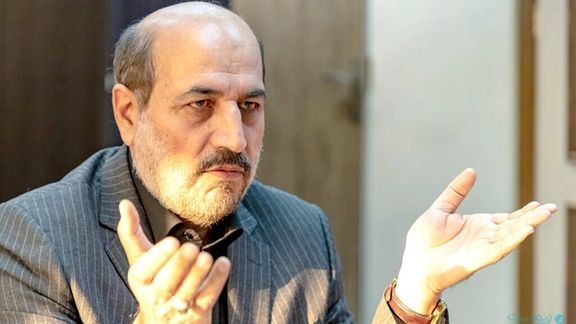
A member of the Iranian parliament criticized the high price of Chinese cars in the country saying Iranians pay 10 times more than its value.

A member of the Iranian parliament criticized the high price of Chinese cars in the country saying Iranians pay 10 times more than its value.
Lotfollah Siahkali said: “The real price of a Chinese car is 6,000 dollars, but we sell for 60,000. Which governance rule does this follow? People are aware of the difference in car prices inside Iran and abroad. Why are we like this?"
This is not the first time the issue of importing cars or car parts from China has drawn criticism.
Last year, Mehdi Dadfar, the Secretary of the Car Importers Association, criticized the ban on car imports and market saturation by Chinese cars and parts.
“They did their best to prevent the import of famous brands and turned the country into one of the provinces of China,” he said.
It seems that China does not want to manufacture cars in Iran and prefers to export cars or parts.
For years critics and politicians have criticized the government-controlled auto industry and have referred to a “mafia” running the money-losing and inefficient sector.
Iran’s two main carmakers – Saipa and Iran Khodro – can only produce 1,400,000 units of light and heavy vehicles, mostly sub-standard older foreign models.
China has been the world’s largest car maker since 2008, with its output since 2009 higher than the US, European Union, and Japan combined. But the quality of Chinese cars is considered poor, with focus on low prices and high production numbers.
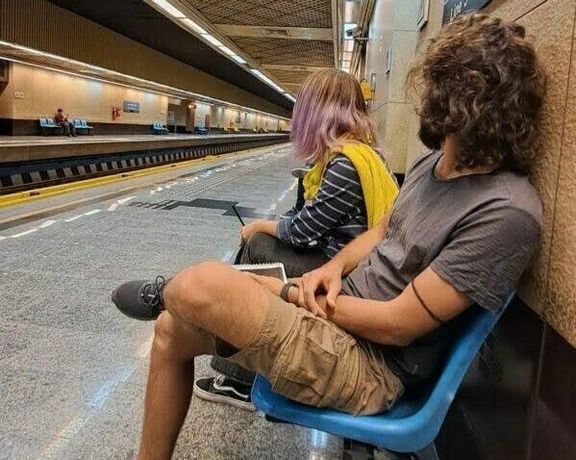
As women en-masse defy the mandatory hijab in Iran, an Iranian member of parliament urged for modesty rules for men as well.
Alireza Pak-Fetrat said on Wednesday that men with tattoos must keep them covered, so as not to break Islamic law, which forbids tattoos as an unholy and unnecessary body ornament, defacing the sacred physical body.
He also stressed that men must ensure their clothing appropriately covers their bodies, such as when riding bikes or sitting in public places, so as not to tempt women by revealing bare skin.
Heated debates over a new bill about how to deal with women who refuse to observe compulsory hijab continues inside and outside the Iranian parliament. The bill mainly relies on cash fines to force women to wear the hijab.
The uprising that was sparked by the death in police custody of Amini has made it increasingly difficult for the clerical regime to enforce the mandatory Islamic dress code. Since the beginning of the ‘Women, Life, Liberty’ movement in September last year, thousands of girls and women have set fire to their headscarves in a symbolic move and voiced opposition to compulsory hijab.
To avoid the public backlash over the violent enforcement of hijab laws, the Islamic Republic has recently begun implementing a wide range of measures from public humiliation tactics -- such as preventing women without hijab to enter subway stations and public places -- to using traffic cameras to identify women without hijab.
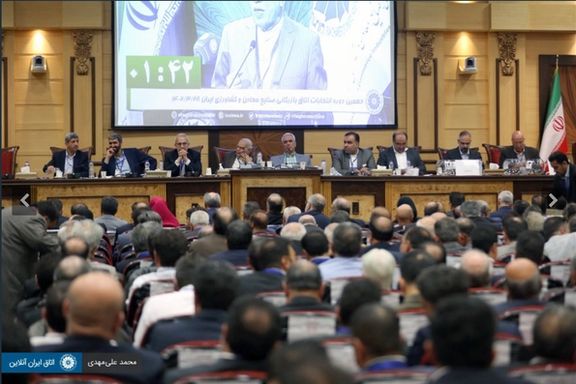
Around 30 lawmakers have urged the government to recent annual elections at the Iran Chamber of Commerce, which sometimes voices independent opinions.
In a letter to the newly appointed minister of industry, mines and trade, Abbas Aliabadi, published by the hardliner Tasnim news website, these lawmakers said the position of the chairman of the chamber, which represents the private sector, is considered as a “significant and sensitive position according to law”.
In elections held Sunday, Hossein Salahvarzi, a businessman who has been an outspoken critic of the government, was elected as chairman.
One of the two candidates who ran against Salahvarzi, Younes Zhaeleh, is known to have close ties with the government.
Salahvarzi obtained 265 votes against 95 votes for Zhaeleh and 62 votes for Hossein Pir-Moazzen.
The chairman of the chamber which has over 400 members has the role of coordinating between the private sector and the government and is sometimes required to participate in meetings with government officials.
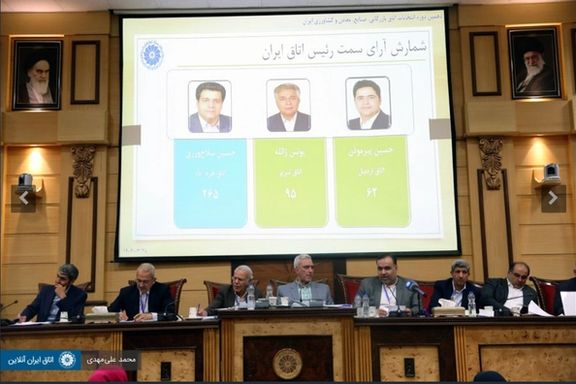
Therefore, the lawmakers argued, the newly elected chairman who they claimed had supported the recent protests and those who sought to overthrow the Islamic Republic, should not have been allowed to run.
The chamber of commerce is a semi-independent organization, which like media outlets is monitored and controlled by the regime. An outright opponent would not be allowed to run for its chairmanship.
“Did the country’s security and supervisory bodies take national interests as a joke” they asked and said Salahvarzi had not been approved to run by the ministry’s security department.
Tasnim also claimed that “security and supervisory bodies”, presumably the ministry of intelligence and IRGC’s intelligence organization (SAS), have referred to “financial [corruption] cases” for Salahvarzi’s disqualification in their correspondences.
Donya-ye Eghtesad, an economic daily, reported that until Saturday evening it was still unclear whether the chamber’s elections would be held according to schedule the next day due to the controversies over the vetting of candidates including Salahvarzi.
Iran Chamber of Commerce often referred to as “private sector’s parliament” has around four hundred representatives who are annually elected at the provincial level.
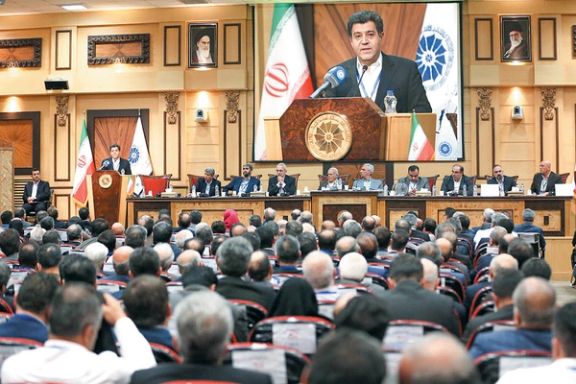
The last elections of chambers of provinces were held on March 11 instead of February 29 because a supervisory body disqualified over 40 percent of candidates, delaying the vetting process.
Mehdi Karbasian, a former deputy minister of industry who represents several high-profile companies, and Masoud Khansari, the then incumbent chairman of Tehran Chamber of Commerce, the most influential chamber in the country, were among the disqualified candidates.
Khansari and other members of the chamber had criticized regime policies that have led to an economic crisis, including a confrontational foreign policy.
Authorities said the vetting was based on a recent regulation that required candidates to have at least two consecutive years of membership in chambers of commerce, to have paid insurance for a minimum of twenty employees during the past year, to have had a minimum annual turnover of 150 billion rials, and to have also been awarded for exports by the Trade Development Organization.
However, some Iranian media outlets such as Aftab News which is close to former President Hassan Rouhani and the Moderation and Development Party alleged that the real reason behind the disqualifications was political as these candidates had been speaking against the government of President Ebrahim Raisi and its policies.
“The ministry of industries, mines and trade and the government are trying hard to shift the control of the chambers, particularly the chambers of Iran and Tehran, to a certain political faction,” Aftab News quoted one of the disqualified candidates who did not want to be named as saying.
Another daily, the reformist Etemad newspaper, predicted that the elections would be engineered to shift the control to government supporters.
Chambers of commerce often produce economic reports that the government finds embarrassing, or they criticize proposed budget bills and other plans.
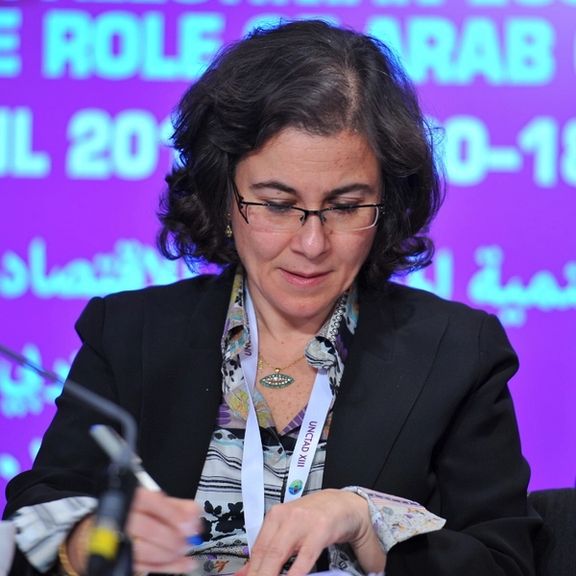
The United Nations has again warned that the human rights situation in Iran has “markedly deteriorated”.
Nada Al-Nashif, UN Deputy Human Rights Chief, presented a report to the Human Rights Council in Geneva on Wednesday saying that the situation in the Islamic Republic aggravated against the backdrop of continuously worsening socio-economic conditions and sanctions.
The report examines developments since the death of 22-year-old Mahsa Amini on September 16which sparked widespread protests throughout the country.
According to the report, there has been a spike in death sentences and executions during the period.
“In 2022, 582 people were executed”, noted the Deputy High Commissioner of UN human rights office OHCHR.
“That is a 75 per cent increase compared to 2021 during which 333 people were reportedly executed. There were three children among those executed in 2022. Of the total number of executions, 256 were for drug-related offences.”
This year alone, that number is already in the hundreds. However, while the UN voices concern for human rights in Iran, it has appointed Iran's UN ambassador Ali Bahraini to the chair of the UN Human Rights Council 2023 Social Forum, drawing global outrage.
Around 20,000 people are estimated to have been detained during the protests, added the report.
“Thousands of children are estimated to have been among those arrested during the protests, while at least 44 children, including 10 girls, were reportedly killed by security forces using lethal force.”
“There have been numerous allegations of torture and ill-treatment of individuals by security forces during arrest and interrogation to extract forced confessions as well as allegations of sexual and gender-based violence committed against women, men and children, especially in detention,” said Al-Nashif.
She also noted that as of March 2, more than 1,000 students, the majority of whom are female, had reportedly been affected by suspected poisoning across 91 schools in 20 provinces.
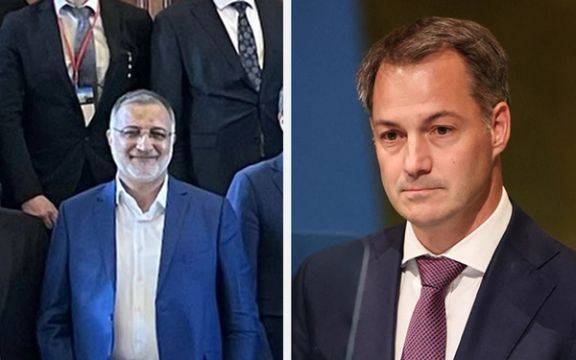
Belgian lawmakers Wednesday questioned PM Alexander De Croo and Foreign Minister Hadja Lahbib for allowing officials from Iran and Russia to attend a mayors' convention in Brussels last week.
Lahbib especially is under scrutiny for having approved visas requests while Iran and Russia are under international sanctions and only three weeks after Belgian NGO worker Olivier Vandecasteele was released from an Iranian jail. He was exchanged in a controversial move with a former Iranian diplomat convicted in a Belgian court of leading a terror plot in Europe and serving a long prison sentence.
De Croo and Lahbib said they didn't want to risk a diplomatic row with Iran close to the release of Vandecasteele and three other Europeans, but lawmakers from opposition as well as coalition parties contest that reasoning.
When in Brussels, the Iranian delegation filmed Belgo-Iranian lawmaker Darya Safai and Iranian opposition members, Belgian national broadcaster RTBF reported.
Safai, who was a prominent activist in Iran before fleeing to Belgium in 2000, said she no longer felt safe in Belgium.
Tehran' mayor, Alireza Zakani, is known as a hardline Iranian politician, who was a member of the Revolutionary Guard’s Basij militia.
The opposition has called for Lahbib's resignation, while extreme-right opposition party Vlaams Belang also asked for De Croo's resignation.
State secretary for external relations of the Brussels government Pascal Smet resigned on Sunday over the all-expenses paid trip.
Reporting by Reuters
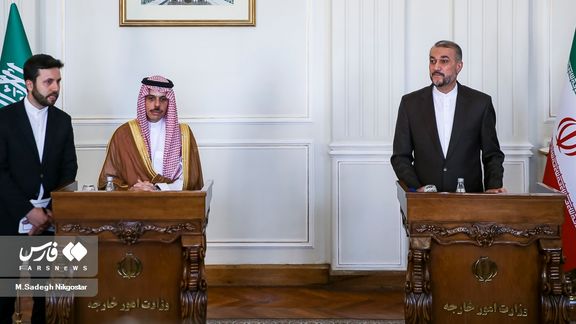
Heated debates in Iran continue about Tehran's ties with Riyadh following an incident during the recent visit of Saudi Foreign Minister Prince Faisal bin Farhan.
The controversy ensued when at the conclusion of talks between bin Farhan and his Iranian counterpart on June 17, the venue of their joint press conference was suddenly changed.
While the Iranian foreign ministry spokesman and the state television insisted that changing the room was "due to a technical problem," Iranian reporters on social media insisted that the Saudi delegation refused to sit in a room where a big portrait of former IRGC Qods Force Commander Qassem Soleimani was posted on the wall.
Foreign policy analyst Diako Hosseini wrote in a tweet: "The Foreign Ministry should have been intelligent enough to predict the Saudis' sensitivities. Now that the ministry was not intelligent enough, the minister should have cancelled the news conference."
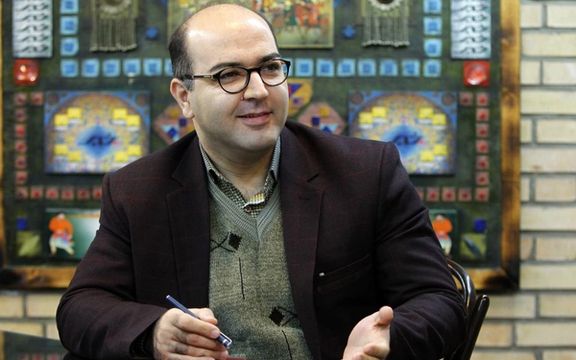
An Iranian commentator in Paris, Mohammad Javad Akbarin tweeted: "In 2019 Soleimani wanted to bring Syrian Leader Bashar Assad to a meeting with Supreme Leader Ali Khamenei to attract media attention. Instead, it was [foreign minister] Zarif's threat to resign that became the day's news. Now, the general's picture has undermined all the achievements of the visit by the Saudi delegation. Dead or alive, Soleimani has always brought about a loss for the country's diplomacy and national interests."
Zarif was apparently caught off guard when Assad showed up in Tehran and was not even invited to the meeting with Khamenei.
At the same time, prominent Saudi columnist Mohammed Alsulami wrote in a series of tweets in both Arabic Persian that "Trust between the two countries is fragile and comments made by some political figures close to Iran shows how difficult is rebuilding mutual trust." He further called on Iranians to avoid using sarcastic language about the Iran-Saudi ties as the Saudis are not interested in “factional rivalries in Iran.”
At the same time, foreign policy analyst Ali Bigdeli told Nameh News website in Tehran that "Not all the problems between Tehran and Riyadh will be solved with a visit to Tehran by bin Farhan. He added that "Some Iranian officials have said that America’s hands will be cut off from the Middle east following the agreement between Iran and Saudi Arabia, but this is not true."

He added: "We still do not have full diplomatic relations with Saudi Arabia. The Iranian ambassador to Riyadh has still not received his credentials from the King." He said in another part of his interview that Saudi promises of investing in Iran may not materialize as long as US sanctions against Iran are in place.
Bigdeli argued that Iran should follow a dynamic policy like Saudi Arabia and maintain healthy ties with both East and West rather than pinning all its hopes on the East.
Meanwhile, moderate news website Entekhab wrote in a commentary that two years after President Ebrahim Raisi declared Iran's policy of expanding ties with China, Iran's "looking east policy" has not been as successful as Saudi Arabia's relations with China.
The website wrote that despite signing a 25-year cooperation agreement with China, Iran's share of trade with Beijing only amounted to half a percent of China's international trade in 2022.
Generally, the total trade volume between Iran and China was less than $16 billion while Saudi Arabia maintained an annual trade of $106 billion with China in 2022, Entekhab maintained.